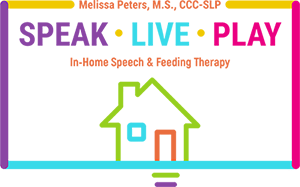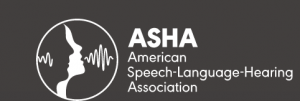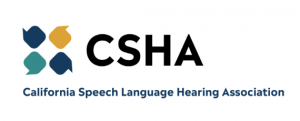Early Intervention / Language Delay Disorder
From birth to the age of three years, the kid’s brain grows most rapidly. Unlike adult brains, the young brain develops more than a million neural connections every second during this stage. Unfortunately, some kids’ brains do not develop at the same rate as their peers due to various issues. Language delay in kids occurs when the language develops slower than kids of the same age and followed by a typical development pattern. For instance, a kid aged 4 understands or uses the language of a child of only 2 years. These kids usually have receptive language delay (understanding the language) or expressive language delay (use of language).
Kids typically acquire language, meaning it is not explicitly taught. It usually follows a predictable sequence of development, and the kid naturally acquires it when exposed to the language and during regular social interaction. Environmental influences and complex genetic interactions affect the development of language in kids. The main language building includes:
- Morphology represents the creation of words to indicate elements; semantics represents words’ meaning.
- Vocabulary, which represents the words the kid knows and uses.
- Pragmatics governs the use of language in interaction with others.
What is Expressive language delay?
Expressive language delay is a condition that influences the kid’s ability to use the language in some way, form, or shape. Although the kid can understand what other people are saying, they may have a problem using the correct words or vocabulary. Others may have difficulty expressing themselves by logically sequencing the information. Expressive language disorder is not part speech disorders classification since it does not affect how we pronounce words.
The disorder is not an intelligence problem but rather an issue that makes it hard for people to share their ideas or thoughts or show that they understand. Generally, a person with expressive language disorder usually has problems forming sentences that make sense. The affected person may take extra time answering questions or taking part in a conversation, making it hard to form relationships with family or make new friends.
What Help is Available for Children with Expressive Language Delays?
Speech-language therapists (SLPs) play a crucial role in helping kids with expressive language delays. The SLPs will offer the much-needed help that these kids need to pick up the skill. As mentioned, language delay occurs due to a variety of reasons. As such, there is no one-size-fits-all approach when it comes to administering speech therapy. After diagnosing the root problem, the speech therapist will address the specific problems leading to the disorder. Instead of waiting for the kid to learn the part of the language on their own, the speech therapist explicitly provides the therapy needed to teach the missing skills.
Signs of language delay at different ages
Language development in kids occurs at different rates; thus, comparing your kids with other kids of the same age may not necessarily mean that your kid has a developmental language delay. While this is the case, it is best to get professional assistance from your doctor if you observe the following signs in your kid’s development at different ages.
At the age of 6 months
When your kid is not:
- Using eye contact to try to communicate
- Not looking or responding when you call their name
- Turn to look at things when you speak about them
By the age of 12 months
The kid isn’t:
- Interested in playing turn-taking games such as peekaboo
- Trying to communicate whenever they want something or assistance
- Trying to communicate using words, sounds, or gestures
By 18 months
Your toddler isn’t:
- Responding to common questions and instructions such as saying goodbye to mom or dad
- Communicating with two words such as ‘want juice or ‘play outside.
By 24 months
The child isn’t:
- Using about 50 or more different words to communicate
- Communicating using two or more words
- Naming at least one color
- Producing words spontaneously
- Responding to common questions and instructions
At about 36 months
Language delay is quite common, from 6 months to 36 months. Research shows that in every six kids, at least one has a language delay sign and is considered a late talker. However, the late talkers usually catch up with their peers by four. You should be concerned about your kid’s language development at the age of three years. If they are not:
- Combining words to make a long sentence or phrase such as ‘I want to play ball’ or ‘Want more juice.’
- Asking persistent questions
- Taking an interest in pictures or books
From 4 to 5 years and older
Some kids will still experience receptive and expressive language delays by the time they begin preschool. When the cause of the language delay is not due to other disorders such as hearing loss or autism, the delay experts categorize it as a development language disorder. By this age, a kid with a developmental language disorder may have the following problems.
- Learning new words and making conversation
- Struggle when using past, future, or present tenses
- Failure to understand the meaning of simple words
- Use short, simple sentences and leave out essential words when making sentences.
- Find it hard to use the right words when communicating
- Early intervention and Treatment for expressive language disorder
Early intervention involves more than just “treating” the kid; it also involves educating, assisting, and guiding the parents. The development of your child improves significantly through early intervention. The intervention helps boost the kid’s capacity for interaction, communication, and the growth of their emotional and social skills.
According to research, 70–80% of kids with only expressive language tend to outgrow the delay and catch up with peers, meaning that 20–30% of them will fall behind. Research further shows that kids that don’t catch up on their language development may struggle with language challenges that last into their school years, as well as problems with writing and reading. The following tips will help your kid develop their brain, grow their spoken language skills, and develop social skills and relationships.
Nurturing and parents or guardians who are responsive
Ensure that you are responsive to your kid. While they can be nagging with multiple questions, respond to each in a calm and friendly voice. You should also watch for your kid’s feelings and reassure them every time you see that they are upset or confused to help build trust and healthy relationships.
Frequently engaging them in conversations
Start talking to your kids from the moment they are born, even if they do not understand. If you speak to your kid frequently, they are likely to grasp the language from you. The kids learn from listening to you and the people around them. Most kids will go from speaking their first words at the age of 12 months and making short sentences by the age of 24.
Plenty of playtimes
Playing with the kids will help in creativity development, allowing them to entertain themselves and learn. Do not use television, mobile phones, or any other screen to keep the kid occupied. A kid learns not only by sight but also through taste, touch, and touch.
Limited screen time
When you use too much screen, the kid will imitate what they see on the television or on phones instead of communicating with real people. Instead of exposing your kid to television, be sure to play, read and interact with them.
How Much Screen Time?
According to the American Academy of Pediatrics, research shows that parents should limit screen time to boost kids’ creativity and help them interact socially. They have given the following instruction for kids when it comes to screen time:
- Kids under the age of 18 months
Zero screen time except when chatting over the video with their family and friends - 18–24 months
Minimal screen time, especially for high programming episodes scientifically proven to help kids in this age bracket - 2 to 5 years
30 minutes to a maximum of an hour, and make sure to co-view the program with the young toddler and explain what you see for them to understand
Why should toddlers avoid the Screens
Kids learn from the environment to which they are exposed. With our busy schedule at work and balancing family life, it is easy to let our kids enjoy the cartoon and more screens than necessary to keep them occupied. Unfortunately, unregulated screen time has severe repercussions on the brain of a young kid, especially when it comes to language development. Here are some of the reasons why we should limit screen time
- Too much screen time leads to language development problems and speech delays. Since the kids are not interacting with other kids, the extended screen time may lead to poor language skills and learning challenges.
- Kids make sense of the world by experiencing real-life concepts. Although they can learn various words and numerals from screens, they cannot conceptualize them until they hold, see, smell and taste them, which only happens when we interact.
- The screens do not foster imagination in kids as they provide the set of choices driven by the corporate interest, whereas in the kid’s brain, the possibilities are endless.
- When parents use screens to distract their kids from being upset, this makes it hard for them to learn the way they can learn how to express their feelings in a healthy manner and in managing their emotions.
- Screens take away the chance for the kid to develop essential behavioral and social skills that help them play with each other, learn patience, and how to comfort themselves.
Creating a healthy environment to help boost child’s language development
- Switch off the screens. When your kid plays, ensure that the TV or any other screen is off. Studies show that parents speak fewer words when there is TV noise in the background.
- Provide old-fashioned toys. Balls, blocks, cars, puzzles, dolls, and even household items such as boxes, pots/ pans) are best.
- Turn to your pediatrician, speech-language pathologist, and other trusted experts for guidance about screen-time use. You are not alone in trying to find balance.
Creating Verbal Routines for Toddlers
Creating verbal routines for kids can help develop crucial skills for kids with language delays and disorders. The verbal routine teaches how parents, therapists, and other professionals develop and introduce verbal routines to toddlers and young preschoolers with expressive language delays and other language developmental concerns.
Verbal routines consist of words that are repeated at a predictable time during activities. The routine occurs when a person says the exact words in a similar way for the same things whenever a specific context occurs. For instance, when we count “1, 2, 3” before diving into a pool or saying “Ready, Set, Go!” whenever playing running games in your yard. The song becomes a verbal routine. As soon as his parents start singing, kids will recognize and anticipate the words.
Verbal routines are also unique “scripts,” you write to accompany an event. These can be original songs or activities you come up with when interacting with a kid. You both like your new routine; as a result, it “sticks,” and you repeatedly play over the following days, weeks, and months. The song or game can be so popular that you find yourself teaching it to other kids in your neighborhood.
For toddlers, a verbal routine that is predictable and repetitious makes it simpler to comprehend the actions and words that will follow. When parents or guardians initiate the verbal routine, the words appear to become “automatic,” which means that the child comprehends and responds with the appropriate word.
Verbal routines are beneficial for all young kids. This strategy is used by many preschool and kindergarten teachers as they recite the same songs to go along with daily tasks. There is little doubt that parents can learn to employ verbal routines at home to improve language development. SLPs can use the same guidance to create Verbal Routines with frequent play activities for therapy sessions.
You’ll enhance the possibility that a kid with receptive language delays will learn to relate the meaning of words with particular events and objects by employing a basic set of vocabulary for each of their regular play routines. When parents initiate the verbal pattern and pause for the youngster to finish the words, the toddler will eventually start to say those very same words to “fill in the blank.”
Choose a few goal words or brief phrases that you’ll employ similarly for the same action each time you play with your kid while building your verbal routines. Keep in mind that time is the essential factor needed for the development of a verbal routine. To recognize and recall the routine, the kid must hear it often. Rarely does a late-talking toddler participate in a routine after hearing the words for the first time.
Adults occasionally overlook the importance of verbal routines because they believe they must change how they speak to children to teach them new vocabulary. While older preschoolers should focus on this, infants who are slow talkers may find the opposite to be the case. Using the same terms for similar tasks might speed up a toddler’s word acquisition. For many late talkers, building on what our brains anticipate hearing can be highly effective. Speech therapists and other experts recommend using verbal routines for kids with language delays and disorders.
What Should You Do?
Concerned about your child’s Expressive Language Delay? Take proactive steps with Speak Live Play as your trusted therapist. Don’t wait and see if your child will catch up with their peers. Schedule an evaluation with Speak Live Play today to understand your child’s needs better and receive expert guidance on fostering their communication skills. Help your child thrive and communicate effectively with Speak Live Play. Contact us now to schedule an appointment!



